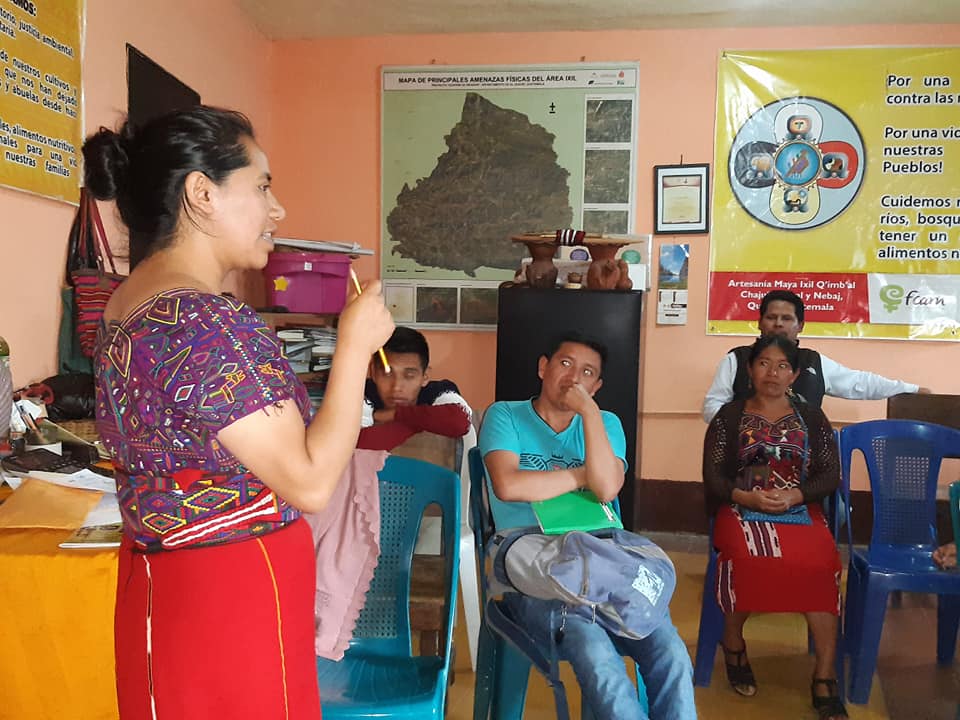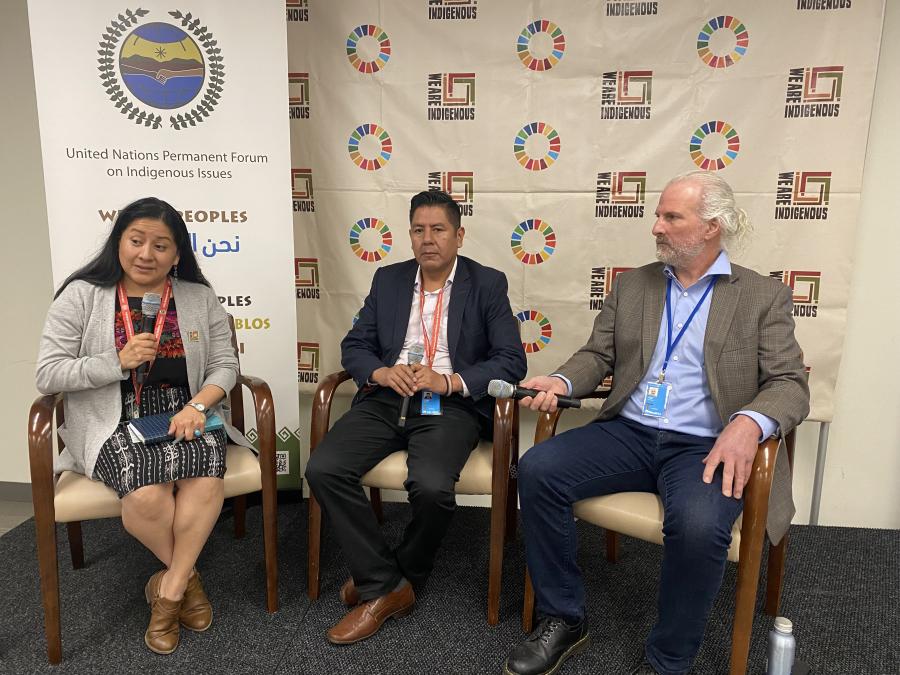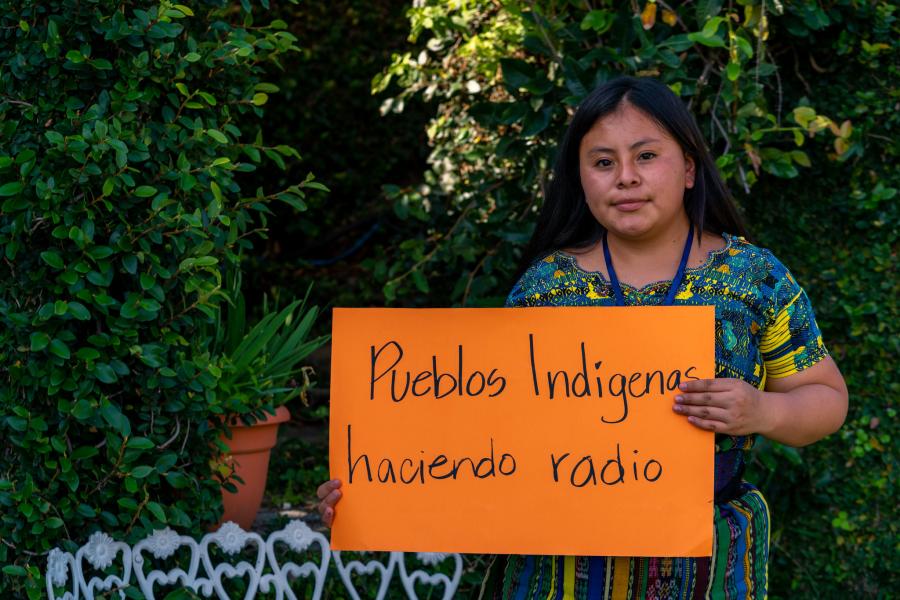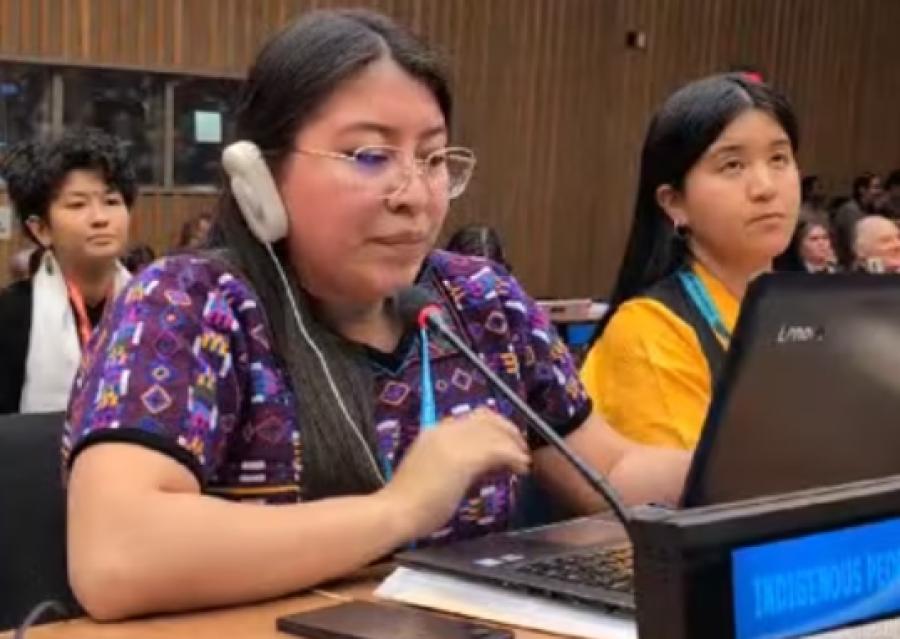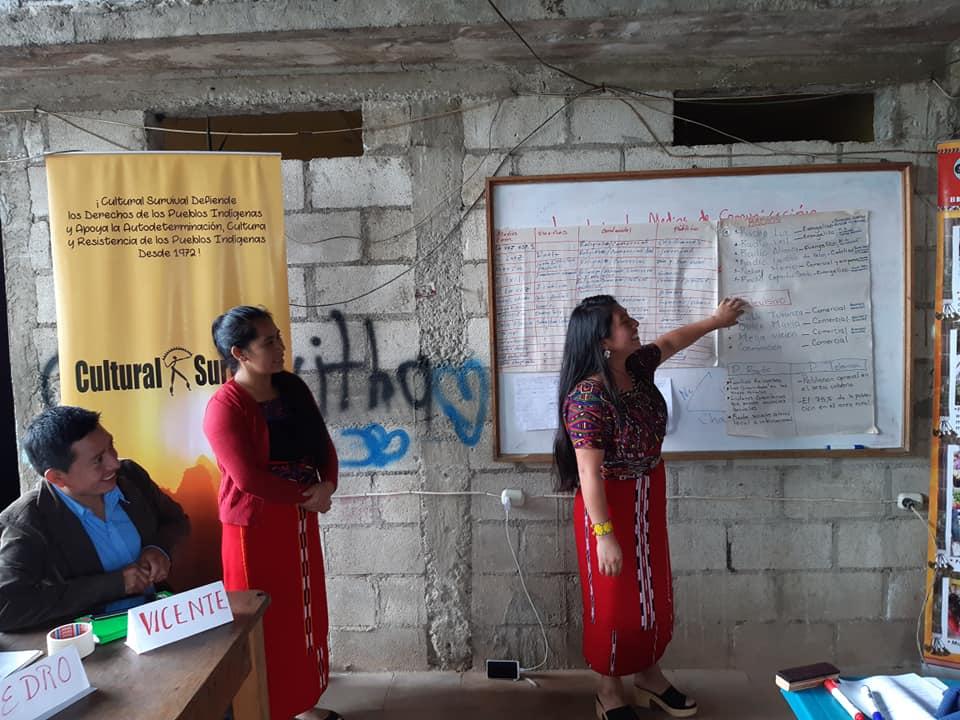
The underrepresentation and the absence of media in the hands of Indigenous Peoples has led to the loss of various elements of cultures over the years and has lead to assimilation, especially of youth. After a brief screening of radio and television in the Ixil region of Guatemala, one realizes that the majority of the stations are religious and tend to limit space to organizations that promote the rights of Indigenous Peoples.
Association Q'imb'al is an organization that in recent years has promoted the empowerment of Ixile women. They have held workshops that facilitate the possibility of installing a community radio, managed by the community and for the community. Upon learning about Cultural Survival’s Community Media Grant Project, they decided to apply. Fundamaya and the Maya Ixil University were included in their proposal. The proposal was approved and now they are in the implementation stage.
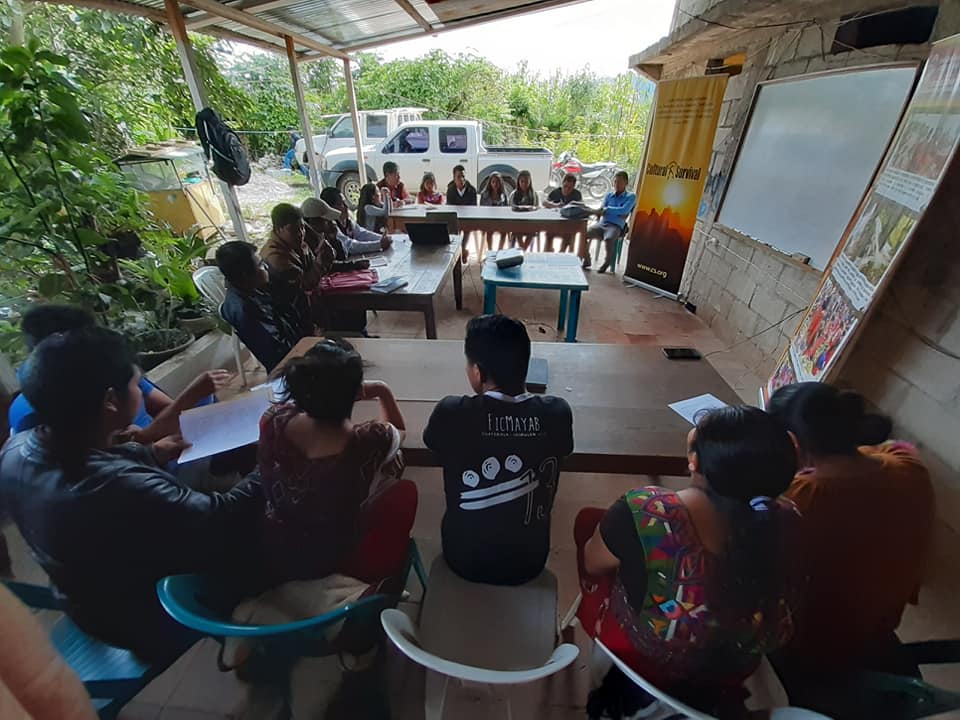
On August 8- 9, 2019, in Nebaj-Quiche, the Women’s Association Q'imb'al, the University Ixil, Fundamaya, Q'asabyol, Red Laval Iq', with the support of Cultural Survival, and WAAC, developed the first workshop to learn about and analyze the media in Guatemala. Whose hands are the media in? What sources of media are there? What content do they offer to the community? What articles of the constitution and international conventions support the right of Indigenous Peoples’ to access their own media?
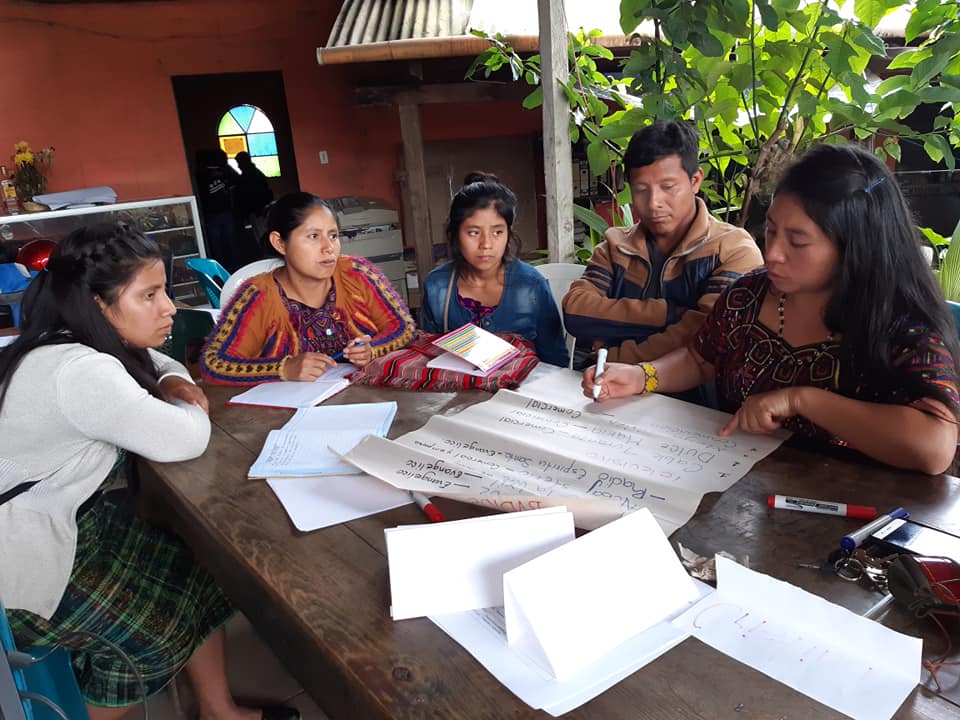 During the workshop, the participants stated, “AS INDIGENOUS PEOPLES, WE ALSO HAVE THE RIGHT TO OUR MEDIA,” the Identity and Rights of Indigenous Peoples Agreement clearly states that the State must provide media to the Indigenous Peoples to promote their languages, their music, their cultures, as does Article 35 of the Constitution of the Republic of Guatemala, and several international human rights agreements. Unfortunately, the State of Guatemala has not complied with its obligations.
During the workshop, the participants stated, “AS INDIGENOUS PEOPLES, WE ALSO HAVE THE RIGHT TO OUR MEDIA,” the Identity and Rights of Indigenous Peoples Agreement clearly states that the State must provide media to the Indigenous Peoples to promote their languages, their music, their cultures, as does Article 35 of the Constitution of the Republic of Guatemala, and several international human rights agreements. Unfortunately, the State of Guatemala has not complied with its obligations.
In other countries such as Mexico, Colombia, Bolivia, the State has already provided access to media such as radio and television to Indigenous Peoples and supports their efforts.
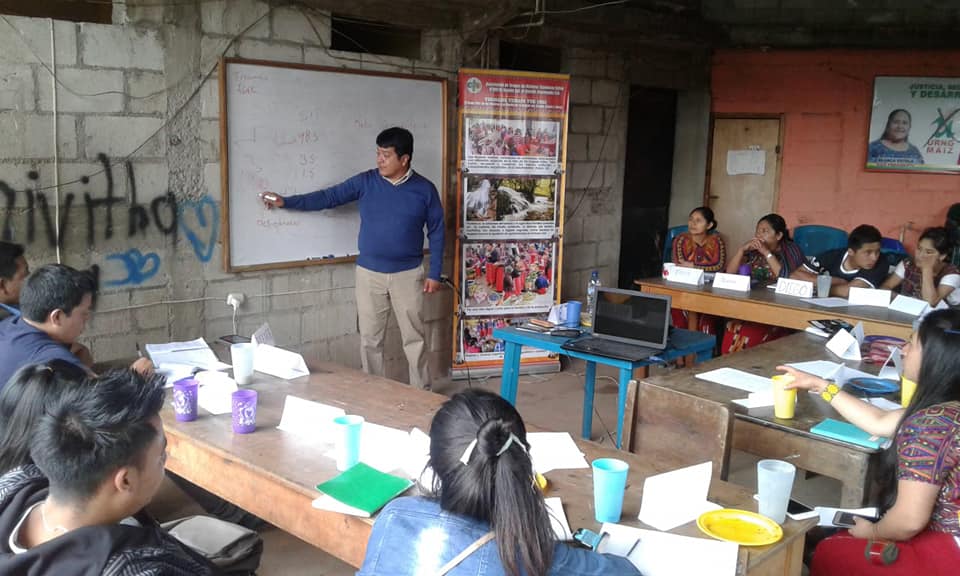
Ana Cheel, coordinator of the project, said she had no prior knowledge of the right to media of Indigenous Peoples. “Now we are clear about our rights, a community broadcaster must allow everyone’s participation. We need to train journalists and announcers who will be on the radio to make educational content, make women's rights programs, and involve ancestral authorities among others.”
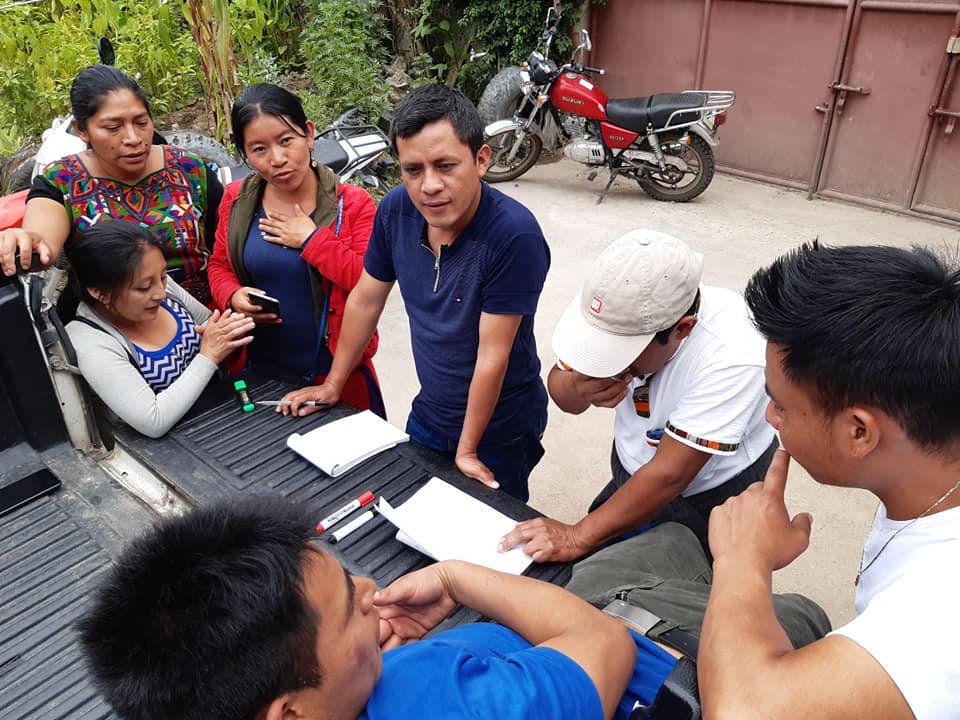
Elías Solis, youth representative, points out, “It is necessary to know our fundamental rights. Broadcasters need to ensure community participation, and have a clear objective for the benefit of the majority. Community radio is a medium where the municipality participates. On air, youth, women, and elders can develop issues about the principles and values of our grandparents and speak about how to take care of mother earth.”
The workshop was attended by 20 people, including women, youth, and representatives of several organizations.
